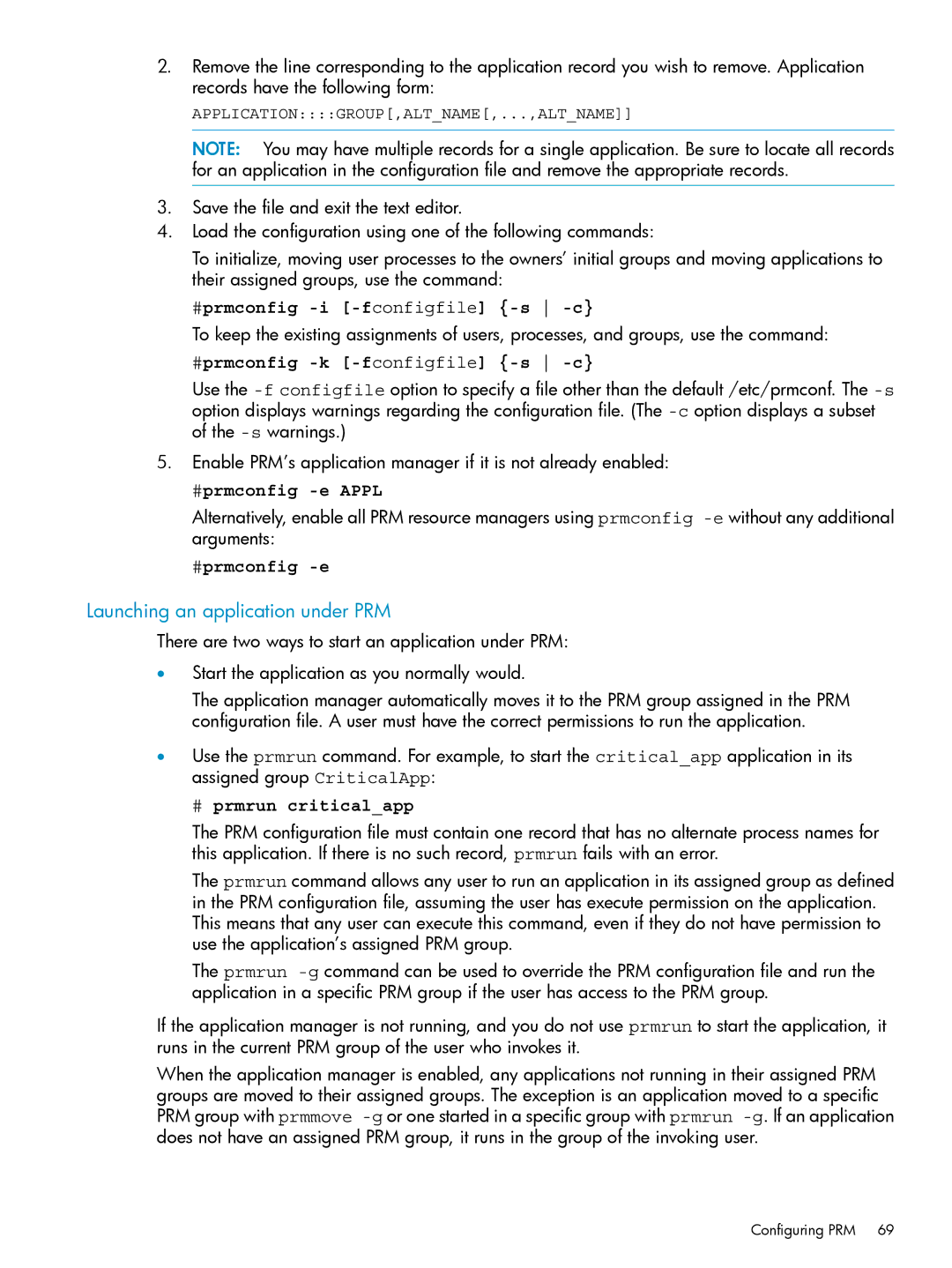2.Remove the line corresponding to the application record you wish to remove. Application records have the following form:
APPLICATION::::GROUP[,ALT_NAME[,...,ALT_NAME]]
NOTE: You may have multiple records for a single application. Be sure to locate all records for an application in the configuration file and remove the appropriate records.
3.Save the file and exit the text editor.
4.Load the configuration using one of the following commands:
To initialize, moving user processes to the owners’ initial groups and moving applications to their assigned groups, use the command:
#prmconfig -i [-fconfigfile] {-s -c}
To keep the existing assignments of users, processes, and groups, use the command:
#prmconfig -k [-fconfigfile] {-s -c}
Use the
5.Enable PRM’s application manager if it is not already enabled:
#prmconfig -e APPL
Alternatively, enable all PRM resource managers using prmconfig
#prmconfig -e
Launching an application under PRM
There are two ways to start an application under PRM:
•Start the application as you normally would.
The application manager automatically moves it to the PRM group assigned in the PRM configuration file. A user must have the correct permissions to run the application.
•Use the prmrun command. For example, to start the critical_app application in its assigned group CriticalApp:
# prmrun critical_app
The PRM configuration file must contain one record that has no alternate process names for this application. If there is no such record, prmrun fails with an error.
The prmrun command allows any user to run an application in its assigned group as defined in the PRM configuration file, assuming the user has execute permission on the application. This means that any user can execute this command, even if they do not have permission to use the application’s assigned PRM group.
The prmrun
If the application manager is not running, and you do not use prmrun to start the application, it runs in the current PRM group of the user who invokes it.
When the application manager is enabled, any applications not running in their assigned PRM groups are moved to their assigned groups. The exception is an application moved to a specific PRM group with prmmove
Configuring PRM 69
